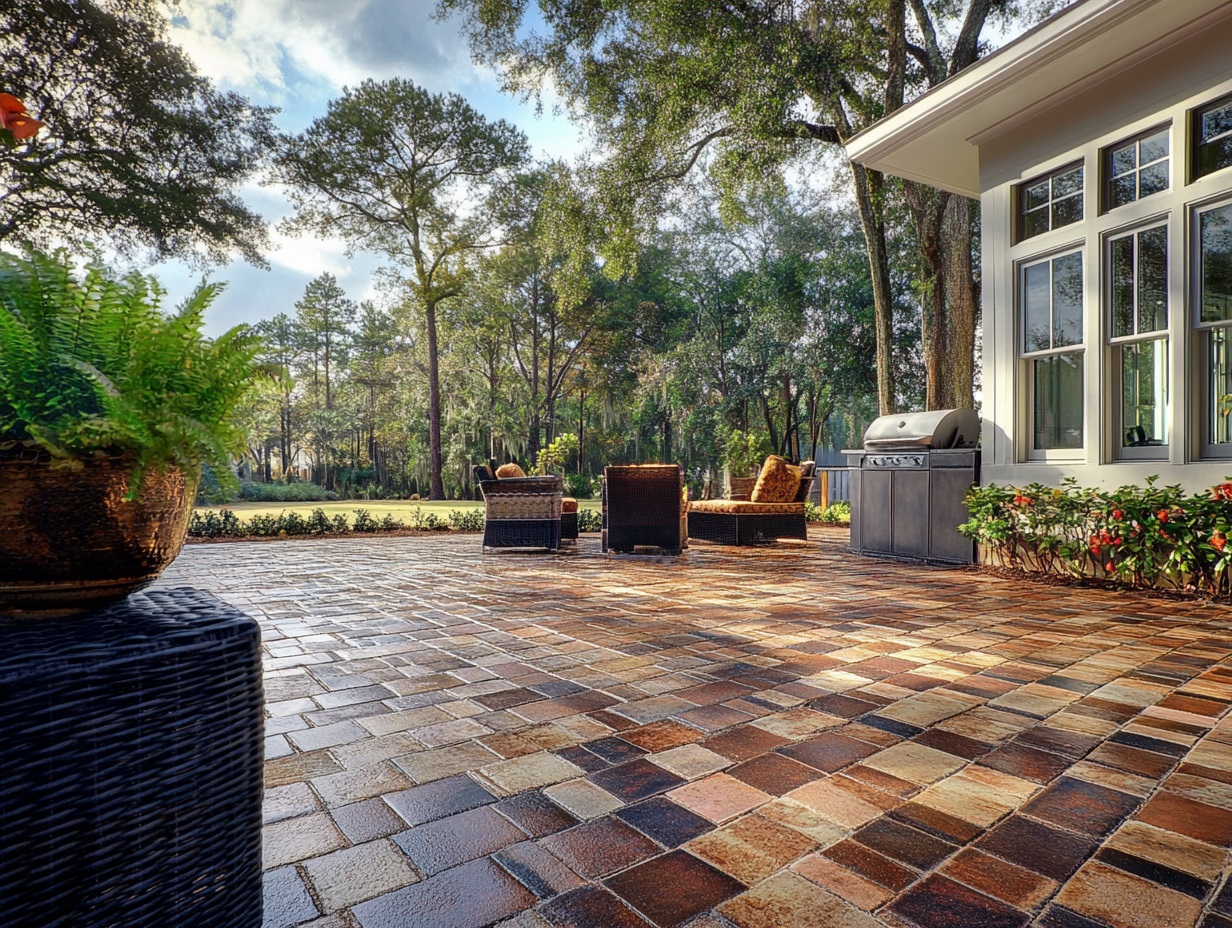Landscaping and hardscaping are essential to creating outdoor spaces that are both functional and visually stunning. While landscaping provides the greenery and natural beauty, hardscaping introduces the structural elements that give form and usability to your yard. Among these, patios play a pivotal role in enhancing outdoor living, offering a space for relaxation, dining, and entertainment.
When designing a patio, the choice of paver material is one of the most important decisions you’ll make. With so many options available, each offering unique aesthetics, durability, and benefits, it’s crucial to choose a material that suits your style, budget, and practical needs. This comprehensive guide compares concrete, brick, and natural stone pavers, helping you make an informed decision for your outdoor space.
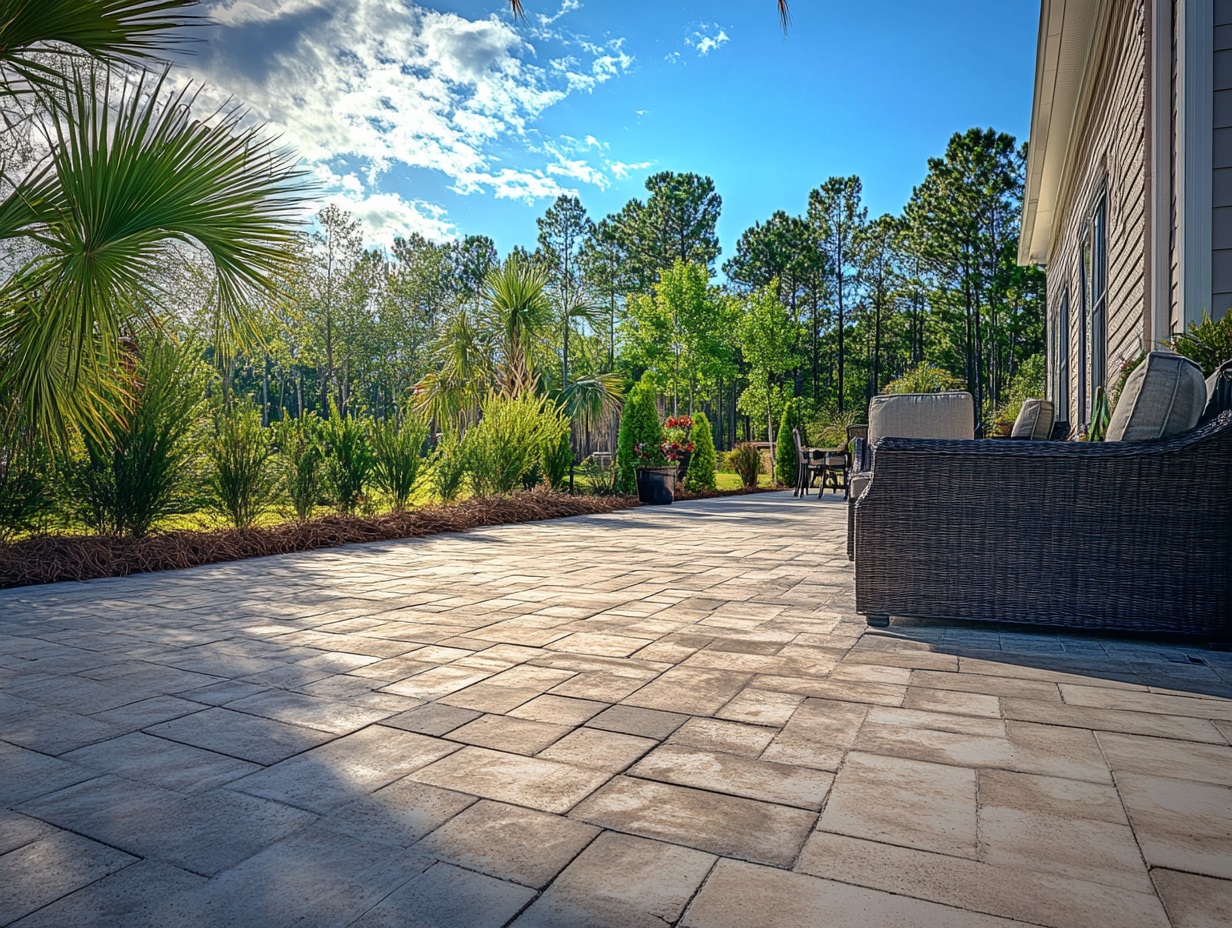
Concrete Pavers: Versatile and Budget-Friendly
Concrete pavers are one of the most popular choices for patios due to their versatility, affordability, and ease of installation. These pavers are manufactured in a wide range of shapes, sizes, colors, and textures, allowing homeowners to achieve virtually any design aesthetic.
Pros:
- Customizability: Concrete pavers can mimic the look of natural stone or brick while offering more design flexibility. You can choose from modern geometric patterns or traditional layouts to suit your taste.
- Durability: Properly installed concrete pavers are resistant to cracking and can handle heavy foot traffic with ease.
- Affordability: Concrete is generally less expensive than natural stone or brick, making it a budget-friendly option for large patios.
- Low Maintenance: These pavers require minimal upkeep, with periodic cleaning and sealing to maintain their appearance.
Cons:
- Fading: Over time, the color of concrete pavers may fade due to prolonged exposure to sunlight.
- Temperature Sensitivity: Concrete can become hot under direct sunlight, which might make it less comfortable for bare feet in warmer climates.
Best Applications: Concrete pavers are ideal for modern patios, outdoor seating areas, and budget-conscious projects where customization is key.
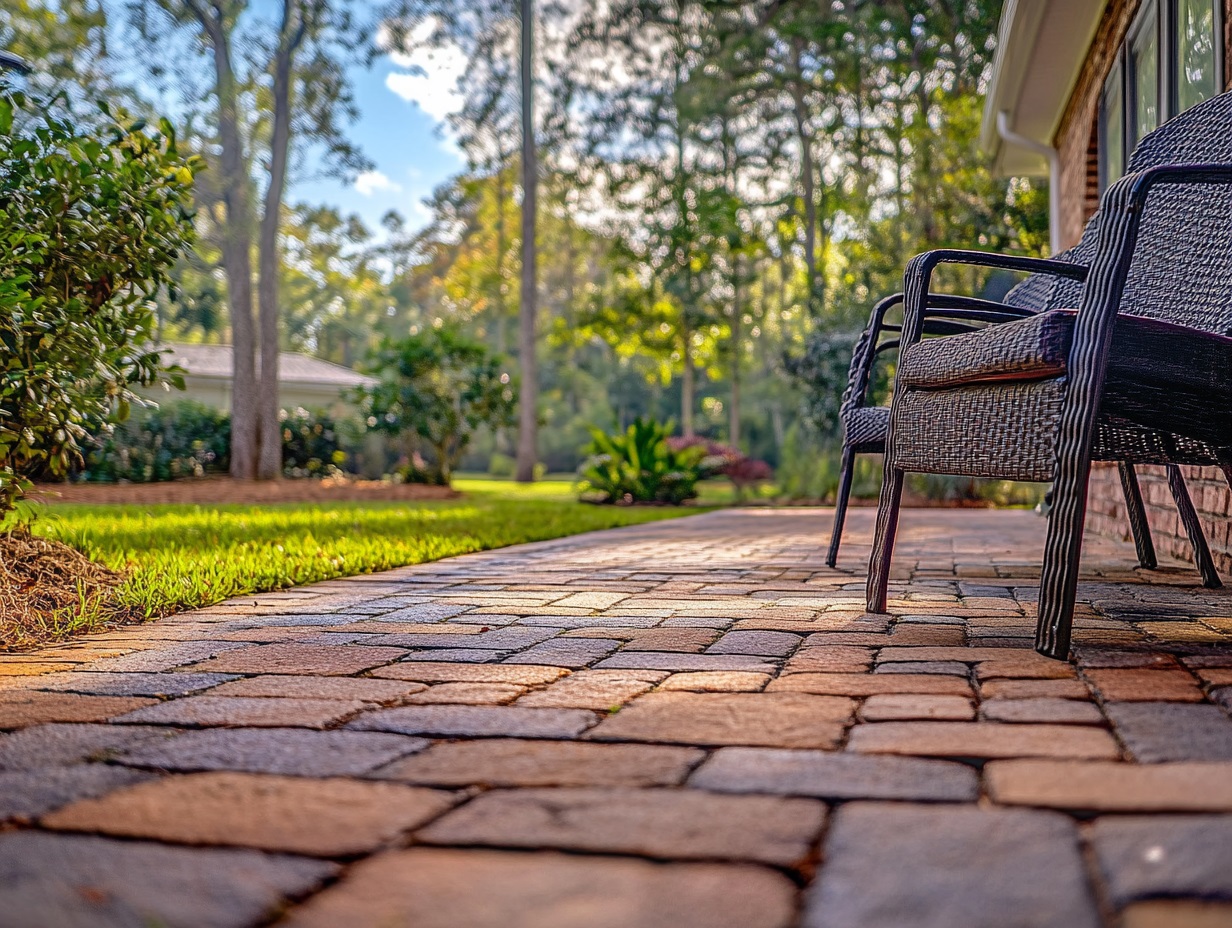
Brick Pavers: Timeless Elegance and Durability
Brick pavers are a classic choice that offers a timeless, traditional look. Known for their rich red and earthy tones, brick pavers are a favorite for homeowners who want to add charm and warmth to their outdoor spaces.
Pros:
- Aesthetic Appeal: Brick’s natural tones create a warm and inviting atmosphere, making it an excellent choice for traditional and rustic designs.
- Durability: Brick pavers are highly durable and resistant to wear and tear, capable of lasting for decades with proper care.
- Eco-Friendly: Made from natural clay, brick is a sustainable option that can often be recycled or repurposed.
- Slip Resistance: The textured surface of brick provides excellent traction, even in wet conditions.
Cons:
- Limited Color Options: Brick pavers are available in fewer colors compared to concrete or natural stone.
- Higher Cost: Brick can be more expensive than concrete, both in terms of material and installation.
- Maintenance: Over time, moss and weeds can grow between the bricks, requiring regular upkeep.
Best Applications: Brick pavers are perfect for patios with a classic or historic aesthetic, walkways, and areas where slip resistance is a priority.
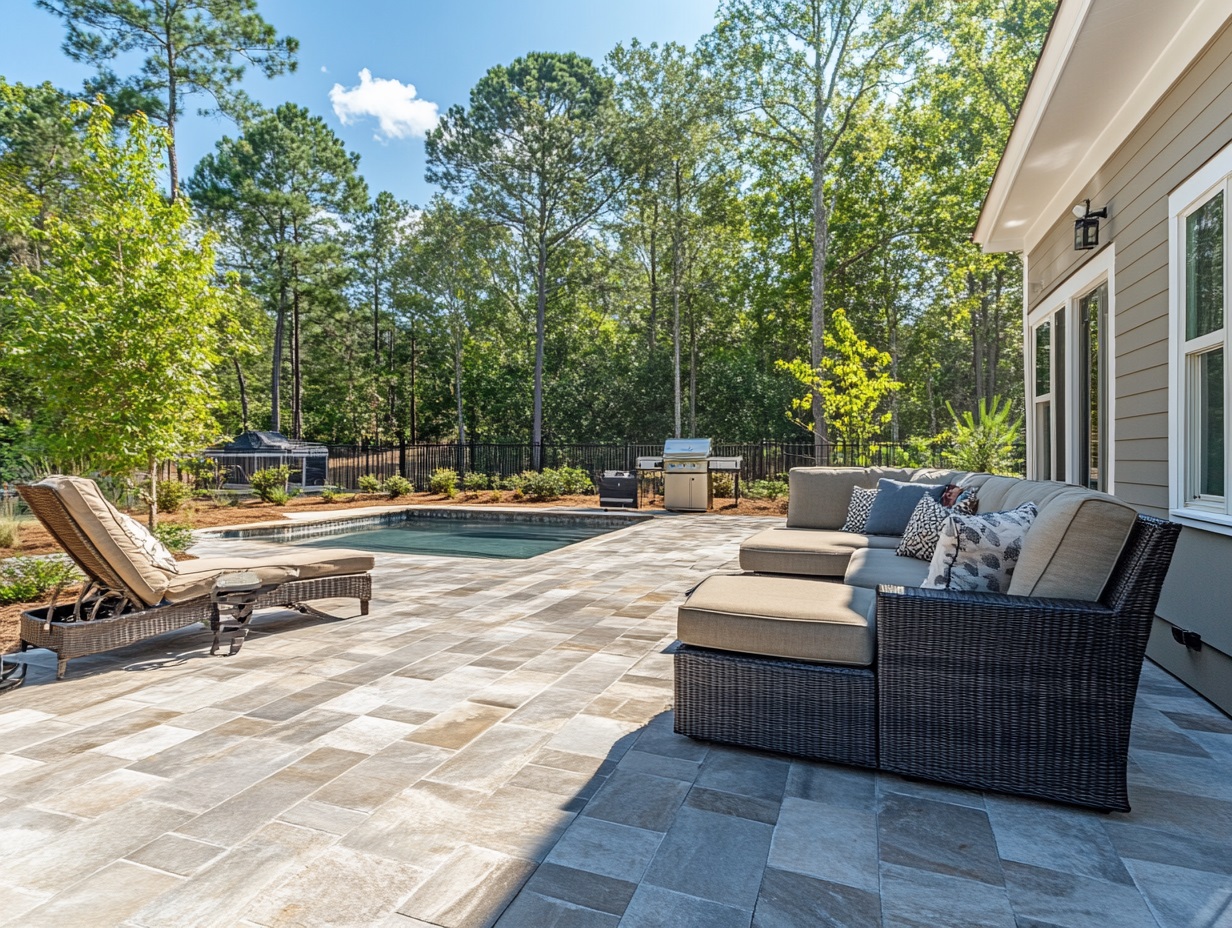
Natural Stone Pavers: Luxurious and Unique
For those seeking an upscale, organic look, natural stone pavers are the gold standard. Each stone is unique, offering one-of-a-kind textures, patterns, and colors that enhance the beauty of any outdoor space.
Pros:
- Aesthetic Excellence: The natural variation in stone creates an elegant, timeless appearance that adds value to your property.
- Longevity: Natural stone is incredibly durable and can withstand harsh weather conditions, making it ideal for all climates.
- Versatility: Available in materials like flagstone, bluestone, limestone, and travertine, natural stone complements a variety of styles.
Cons:
- Cost: Natural stone is the most expensive option due to its sourcing and installation requirements.
- Complex Installation: Stone pavers often require skilled labor to install, which can add to the overall cost.
- Maintenance: Some types of natural stone are porous and may require regular sealing to prevent stains and water damage.
Best Applications: Natural stone is ideal for luxurious patios, pool decks, and outdoor areas where aesthetics and durability are top priorities.
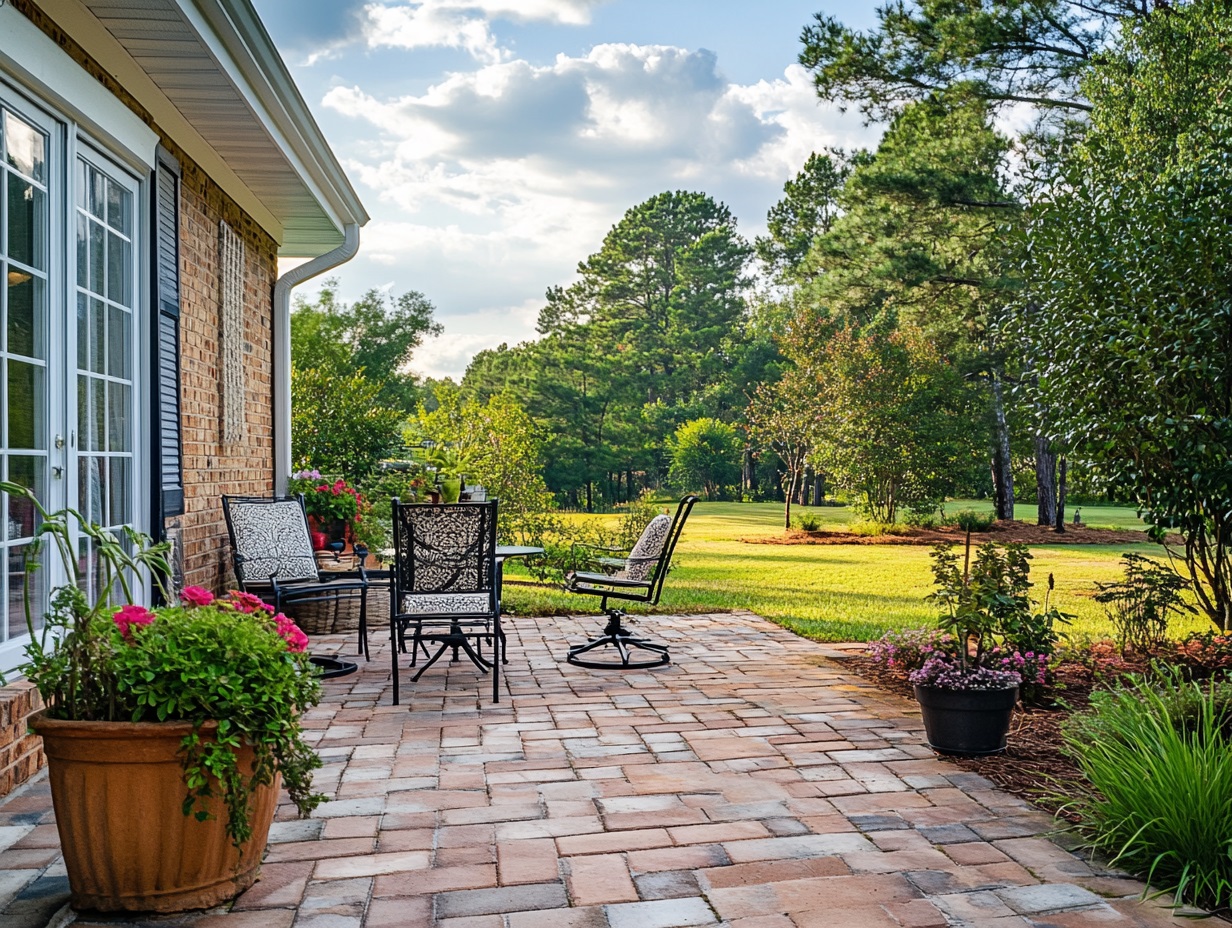
Choosing the right paver material for your patio involves balancing aesthetics, functionality, and budget. Concrete offers versatility and affordability, brick provides timeless charm and durability, and natural stone delivers unparalleled beauty and longevity. Understanding the pros and cons of each material ensures you make an informed decision that meets your needs and enhances your outdoor space.
At Precision Hardscape Construction, we specialize in helping homeowners create stunning patios tailored to their vision and lifestyle. Whether you’re looking for the affordability of concrete, the elegance of brick, or the luxury of natural stone, our team has the expertise to bring your dream patio to life. Contact us today at www.precisionhardscapeconstruction.com or call +1 (843) 222-5377 to start planning your patio project.

